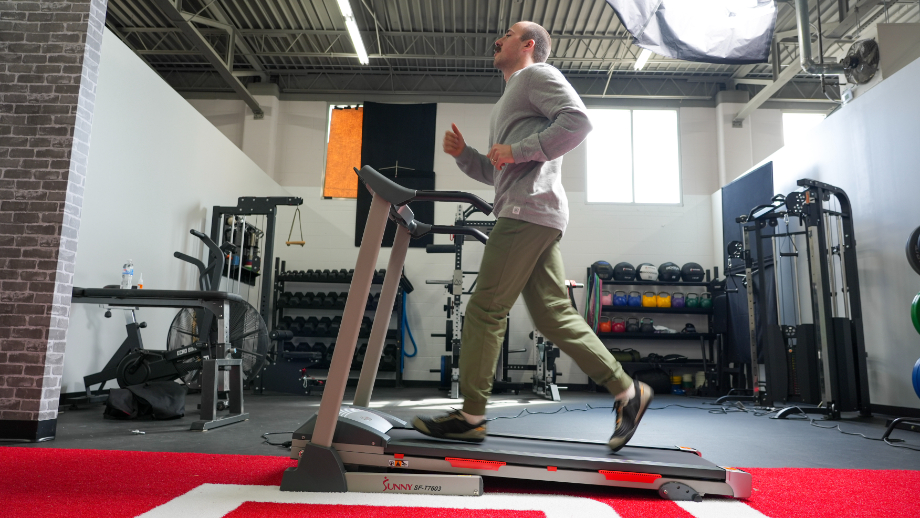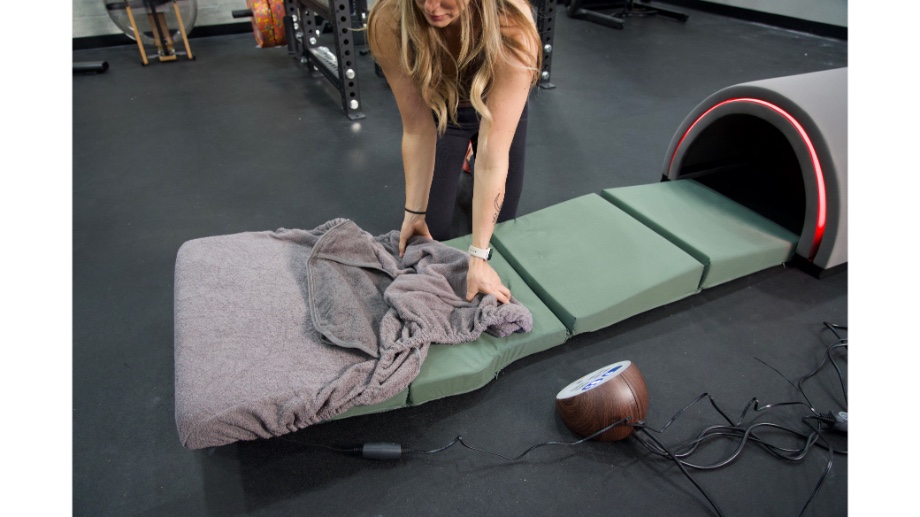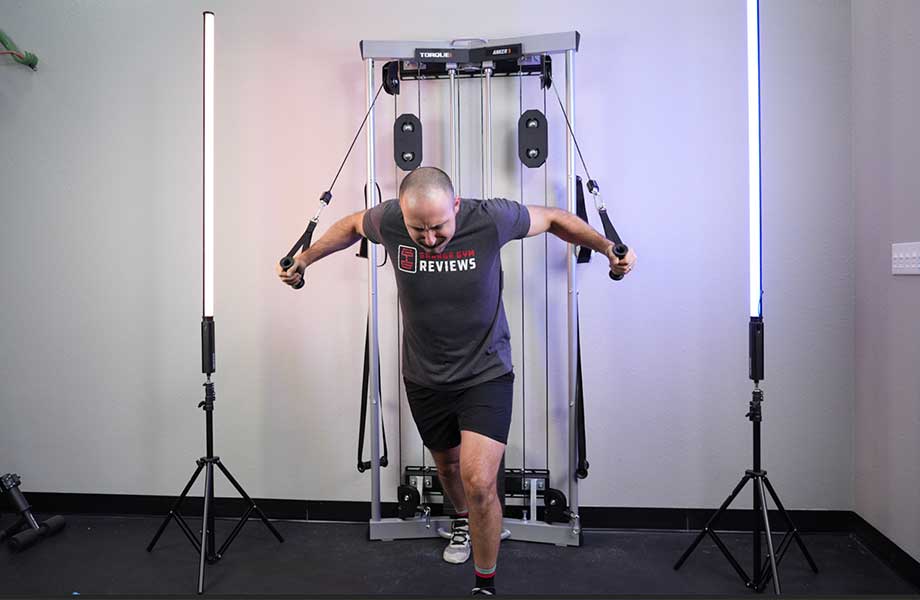Creating a home gym is an incredibly convenient way to exercise. When you put a treadmill in your house, you can reap benefits of cardio like getting your heart rate up, burning calories, and improved overall well-being.
One of the things we all do, though, when considering buying something is to look at the bottom line, AKA the cost. The good news is there are many budget-friendly treadmills on the market, but what does “budget-friendly” mean, and how much does a treadmill cost, on average? We take a look at all that and more below.
The Average Cost of a Treadmill
A treadmill can cost anywhere from a couple hundred dollars to upwards of $3,000 (or more). Heck, I’ve seen machines run north of $5,000. As such, there are a lot of factors that can determine the price of a treadmill.
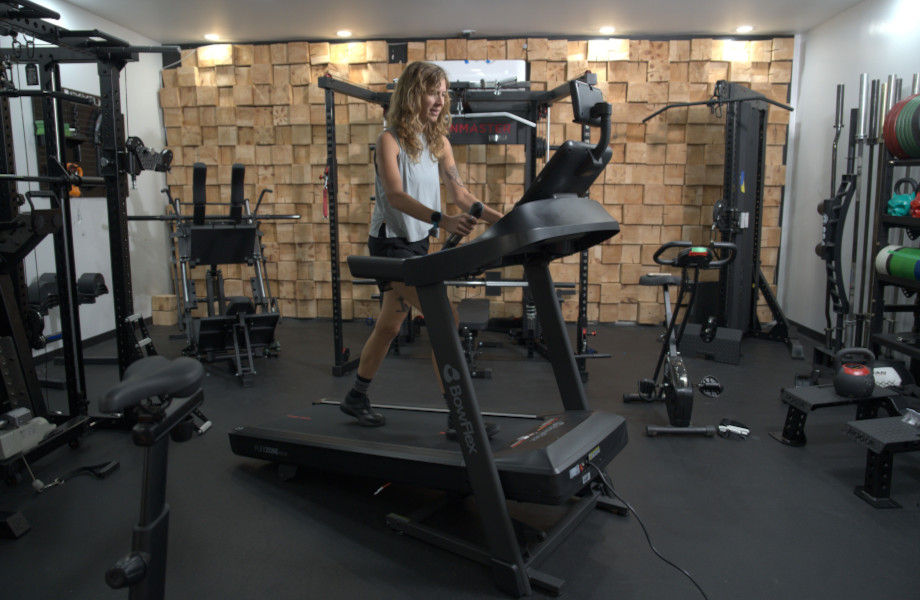
Generally speaking, we can break down treadmill pricing into a few groups and associate some key features with them:
| Treadmill Type | Budget Treadmills | Mid-Range Treadmills | High-End Treadmills |
|---|---|---|---|
| Price | From $500 to $1,200 | Between $1,000 and $2,000 | Over $2,000 |
| Incline and Speed | Fewer speed and incline options | Offer inclines up to 15% and speed ranges up to 12 MPH | Can offer incline and decline settings as well as speed ranges up to 12 or 15 MPH |
| Footprint and Portability | Tend to be very compact | Larger, but often offer foldability | Tend to be big and heavy |
| Motor size | Lower horsepower motor (2.5 CHP or less) | Offer up to 3.0 CHP | Strong motors (3.5 CHP or higher) |
| Tech and Programming | Some built-in preset programming | Have some tech capabilities and programming | Often offer interactive programming |
This is just a glimpse of how treadmills can be categorized, though there are always exceptions to the rule. For example, there are machines like the Proform Carbon TLX, which is under $1,000 yet offers high-end capabilities like interactive programming through iFIT.
Also, if you’re really looking to save money, there are ultra-budget treadmills under $500, though you may be sacrificing a bit on performance features and comforts if you go below this price range.
Lastly, remember to look at shipping and costs. Some treadmill brands offer free shipping, or you may score Amazon Prime shipping through the popular online retailer. More often than not, however, getting a treadmill to your home and getting it assembled professionally will add a few hundred dollars to the expense total.
Factors That Affect Treadmill Price
Just like any other home gym equipment, there are many factors that can play a role in determining the price of a treadmill. Some of the main points to consider are motor, speed, incline, interactive programming, and added conveniences.
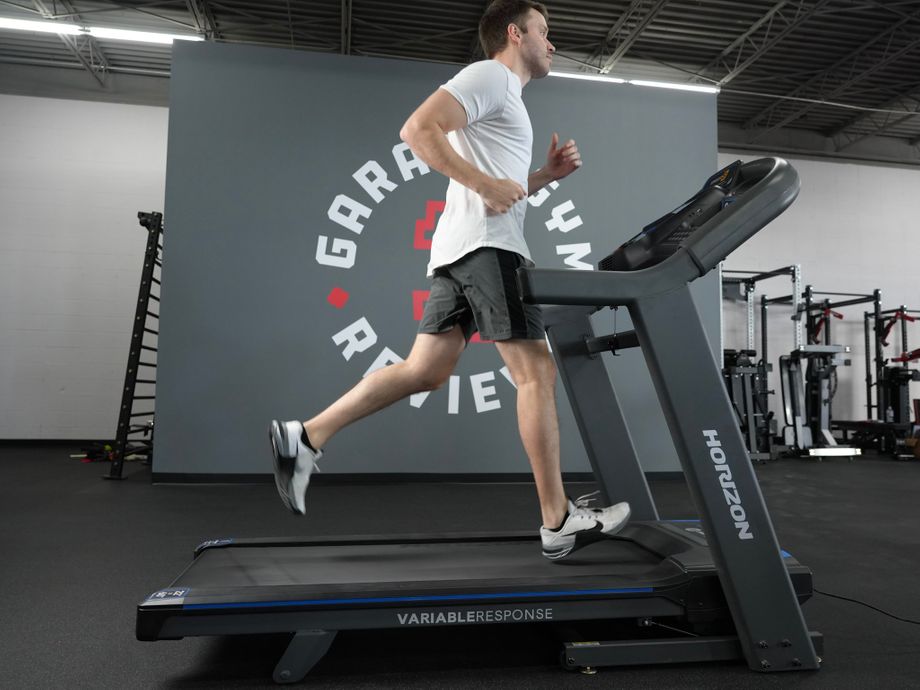
Motor
Horsepower is important to consider when purchasing a new treadmill for your workouts. Simply put, horsepower is a measure of how much power a motor can produce. For a treadmill, it’s important to consider continuous horsepower (CHP), or the machine’s ability to put out consistent power for an extended period.
More horsepower means larger, more sophisticated motors, which can increase cost. Less horsepower means fewer speed options, albeit for a more affordable cost. We tend to recommend treadmills with a motor of 2.5 CHP or higher, but there are certain needs and budgets where a smaller motor would suffice (think walking or under-desk treadmills).
In addition to price, consider your personal goals when considering treadmill motor sizes. Are you walking or jogging for maintenance? You might be able to get by with a more inexpensive option with a CHP of 2.0. Do you need a treadmill for running at higher intensities? If so, you’ll want a treadmill with a CHP of 2.5 or above, because those motors are designed to sustain frequent and higher-speed running.
Also, you may consider cutting the motor completely and getting a manual treadmill. While these can be sturdier than motorized machines, they do have certain trade-offs including a common lack of integrated programming or foldable frames.
Incline and Speed Options
Training at an incline can be great for toning your glutes, hamstrings, and calves. Adding incline to your walk or run increases your ability to burn calories1, burn fat, and build muscle. Inexpensive treadmills may not offer incline options, because powering the deck to move requires additional mechanics (and more money to build). Higher-end treadmills, conversely, might have high max incline levels, as well as decline training, like the NordicTrack Commerical 1750.
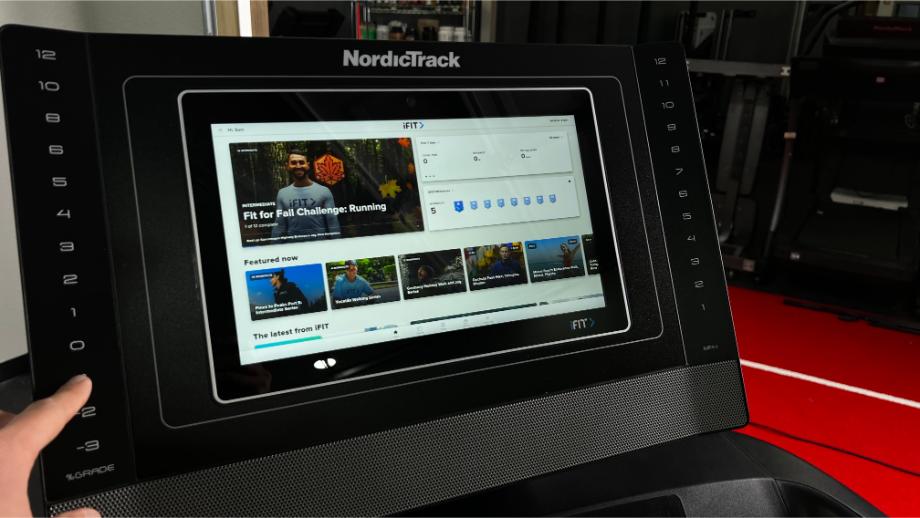
Speed adjustment is a common feature among even the most inexpensive treadmills. Having various speed options can take your workout from a leisurely walk to a full sprint with plenty of variety intertwined. You might find that cheaper treadmills have a lower maximum speed, only going up to 8 or 10 MPH, which is totally fine if you don’t need to go any faster than that. More expensive treadmills have top speeds of 12 or 15 MPH, with some models even supporting faster paces without issue.
Workout Programs
Having onboard programming is a great feature that many modern treadmills offer. If you’re new to treadmill workouts, or simply like not having to think about what you’re doing, built-in programming can get you on your way to a great workout with just a few clicks.
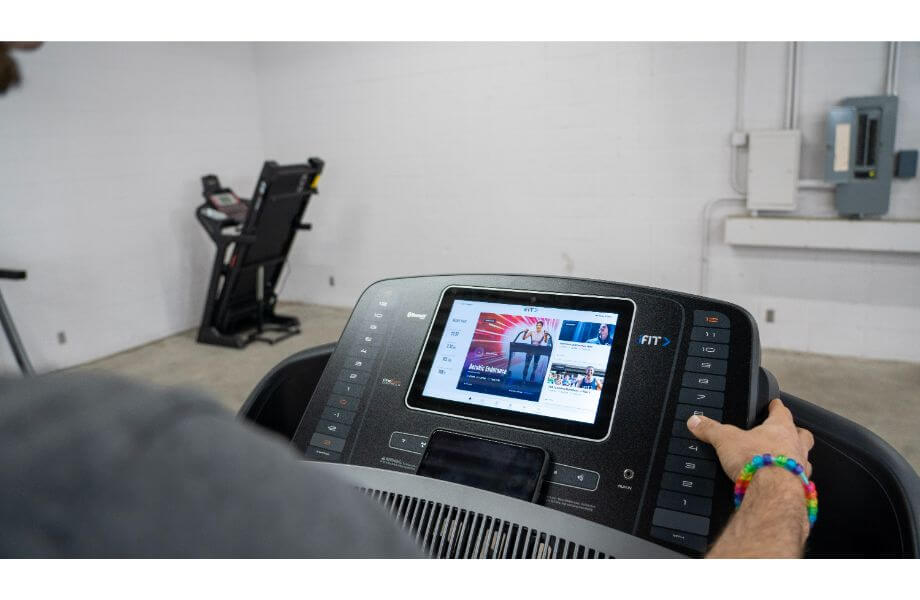
Some treadmills and cardio machines include interactive training programs, as well. These streaming apps, such as iFIT or Peloton, can provide real-time training, on-demand classes, and even create workouts geared toward your personal goals. Some even gamify the experience, with live races and challenges pitting you against other online app subscribers. For many people, these services can increase motivation and even connect you with online trainers for added instruction.
Pricing around workout programming can be a little all over the place. Budget treadmills may offer only a few preset workouts but have Bluetooth-compatibility, so you can still subscribe to something like iFIT for NordicTrack or JRNY for Bowflex. In that way, you might get the best of both worlds. On the other hand, some expensive treadmills might not have any pre-programmed workouts and instead require you to subscribe to a streaming service for any sort of programming.
Size and Durability
When it comes to price, size matters. Many low-cost treadmills are compact, because fewer materials means less cost. Bigger treadmills often come with a steeper price, but they might offer a longer running deck and a sturdier frame.
The deck on a treadmill is what holds and rotates the belt. If your main goal is simply walking, you may only need a treadmill with a 50-inch deck. If you are a runner or a taller individual, you may need a larger running surface to match your stride. Most people can handle a 55-inche deck, but we recommend a 60-inch deck for anyone over 6 feet tall.
Weight capacity is important, as well. The industry standard for mid-range treadmills is a weight limit of about 300 pounds, sometimes more. Smaller budget treadmills that offer more portability tend to have a less sturdy structure and may not hold as much weight.
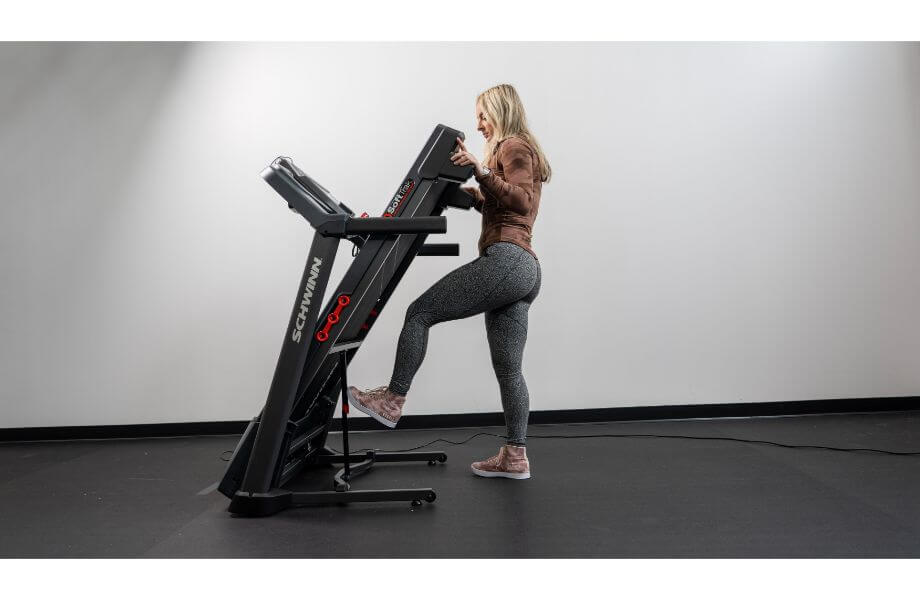
Conveniences
Consider some of the leisure amenities you might want during your workout. These can be something as small as a water bottle holder or a built-in fan to cool off. The higher-end treadmills may offer more conveniences such as:
- Bluetooth connectivity
- Heart rate monitor
- Tablet holders
- Touchscreen or LCD display
- TV with cable
- Multiple handles
- Easy-to-reach buttons to increase or decrease speed and incline
Keep in mind that the more features a treadmill has, the more expensive it is likely to be. A budget treadmill may just have handles and a water bottle holder, but you can expect plenty more features on a high-end treadmill.
RELATED: Best Smart Treadmills
Warranty
Another factor that could affect the price of a treadmill is the warranty. Some companies will offer a lifetime warranty, while others may only offer warranties on certain parts or for a few years. Typically, cheaper treadmills come with shorter warranties.
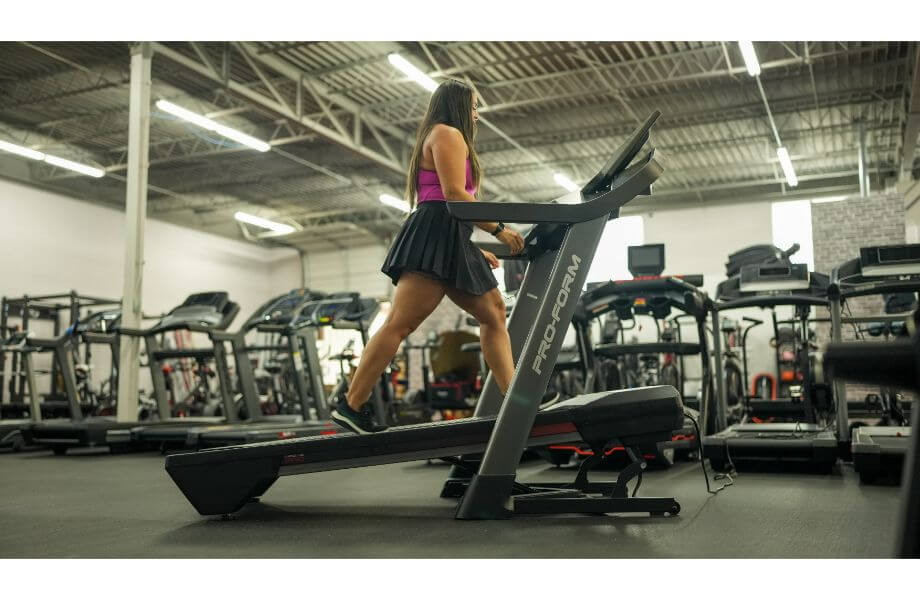
The industry standard warranty for a treadmill frame is 10 to 15 years; they usually come with a two-year warranty on parts and components, as well, plus a one-year labor warranty. Check to see if the treadmill belt and motor are covered in the warranty, as well. If you are using your machine often, it may wear faster and require more treadmill maintenance or replacement parts. If the treadmill you are looking at doesn’t come with a good warranty, you may want to consider the quality and the durability before making your purchase.
Types of Treadmills
There are many different types of machines on the market. It’s important to know what to look for in a treadmill so you find the one that fits your space and your goals.
RELATED: Treadmill Buying Guide
Motorized Treadmills
Motorized treadmills are just like they sound. They come equipped with a motor that, when turned on, starts turning the belt. With adjustable speed options, these treadmills can be ideal for challenging any user, since the motor keeps the belt moving while the runner or walker keeps pace.
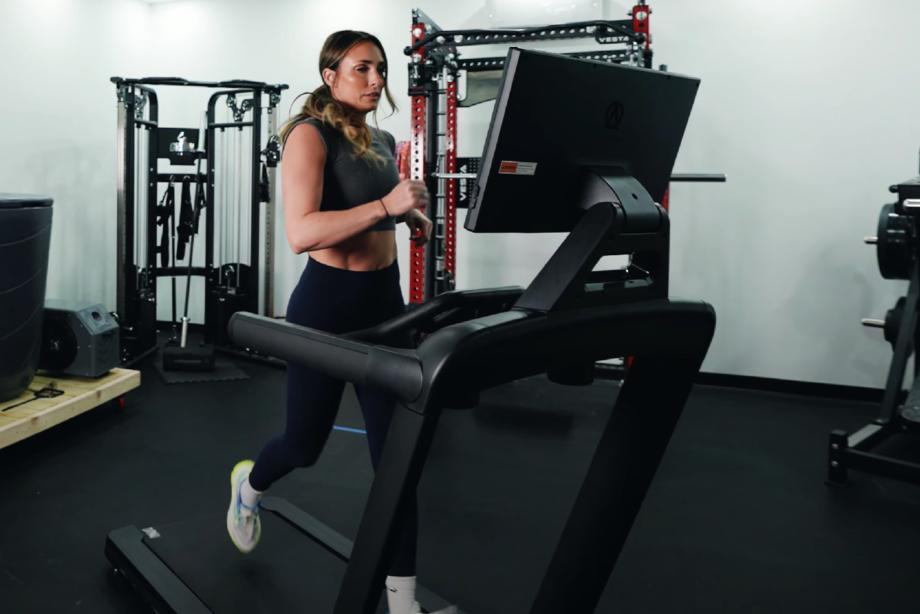
This can help increase cardiovascular endurance by pushing you past your natural pace. Motorized treadmills are great, however they can be costly compared to non-motorized treadmills because of the necessity for a motor.
Non-motorized Treadmills
A non-motorized or manual treadmill is powered using your legs. This type of treadmill responds to the effort applied by the runner or walker. If you speed up, the belt will move faster, and vice versa if you slow your stride. Some manual treadmills are budget-friendly, but they tend to have poor shock absorption due to less cushioning, and can put more strain on your joints. On the other hand, manual curved treadmills are pricier, but mimic a more natural running stride and are built with more cushioning.
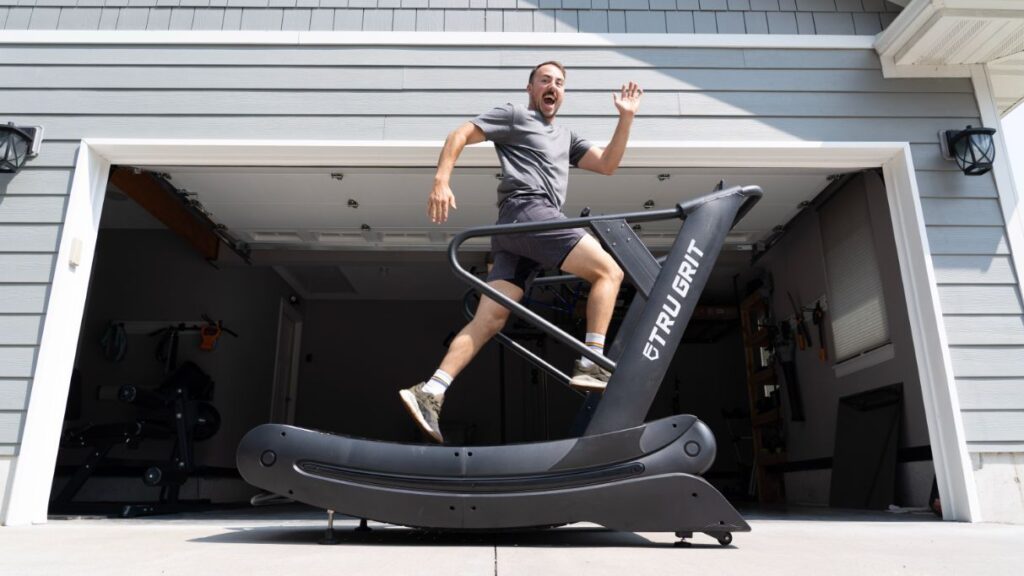
Under-Desk Treadmills
An under-desk treadmill is a great option for any multitasker. These treadmills for walking are designed to slide under a standing desk so you can walk while you work. Most operate as low as 0.5 MPH to a maximum speed of 4 MPH for safety purposes, so you can maintain balance while performing other tasks.
The average under-desk treadmill costs between $300 and $500. This is a cost-effective way to get a bit of exercise in during work hours. However, if you’re looking for anything more than a leisurely walk, this may not be the best-suited treadmill for you.
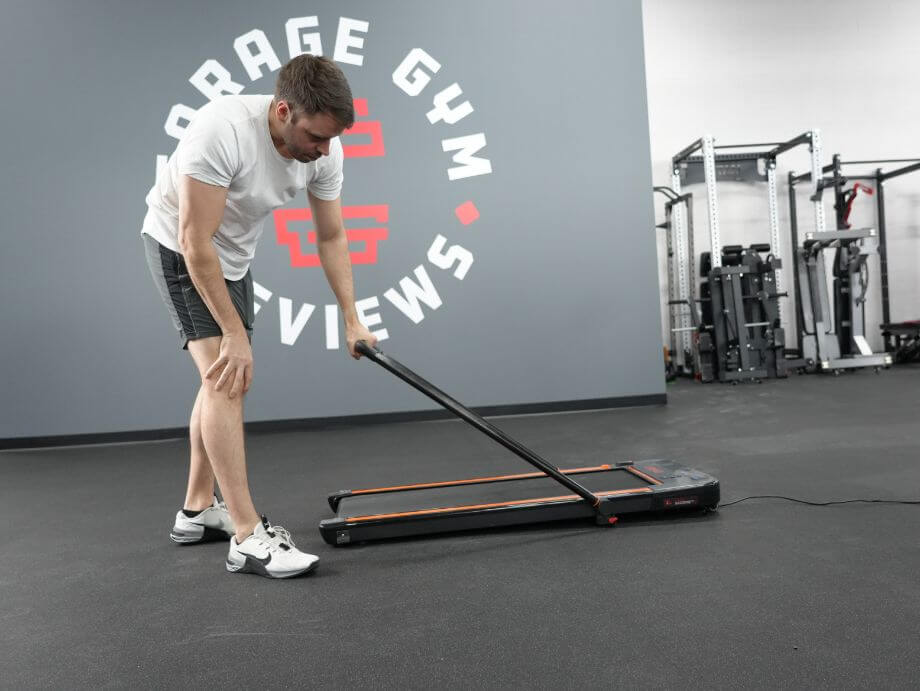
Foldable Treadmills
A foldable treadmill is a great addition for any at home workout area where floor space is a commodity. These compact treadmills feature a deck that lifts and folds, and some can even store flat, making them great space-savers if you’re trying to get in a quick workout in your office, garage, or a spare room.
When looking into folding treadmills, be sure to check the safety rating and reviews. You can find a foldable treadmill for almost any price range, with options starting as low as $300 and going up to $2,000 or more.
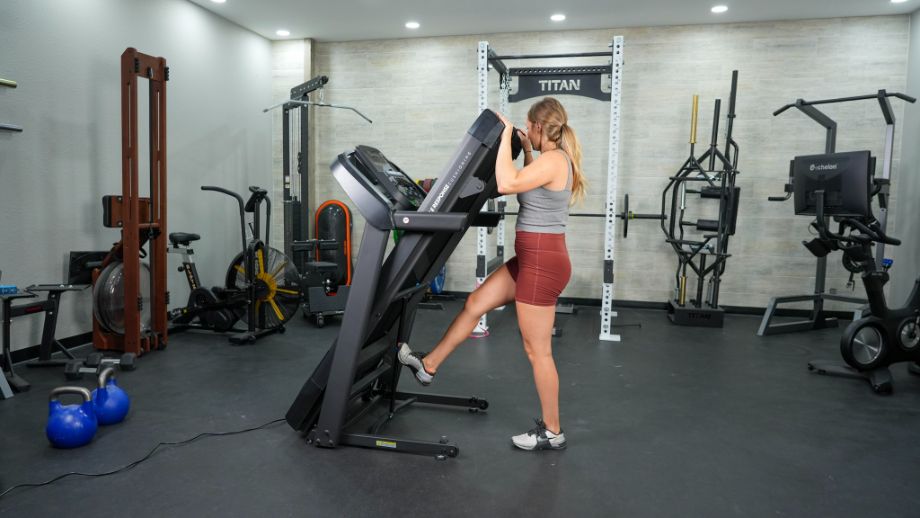
How Much Does a Treadmill Cost? Final Thoughts
There are many factors to consider before buying a new treadmill for home use. You want to make sure you pick what is right for you and your budget by considering the price. The price will depend on a number of things, including your overall fitness goals, workout programs, conveniences, storage space, warranties, and more. Lastly, check out reviews on the best treadmills on sites like ours to get a good idea of what to expect before you buy.
How Much Does a Treadmill Cost? FAQs
How much does an average treadmill cost?
A quality treadmill should be durable and meet basic industry standards such as a weight capacity of 275 pounds, a 55-inch deck size for most runners (60 inches if you’re taller), speeds up to 10 MPH, and a good warranty of at least 10 years on the frame.
The average cost for a decent treadmill is around $1,000. Expect to pay double for a high-end treadmill with interactive programming and less for a treadmill with pared-down features. There are many treadmills under $1,000 we recommend, too, for those looking to save even more money.
Is it worth getting a treadmill?
An at-home treadmill can be a great time- and money-saver. Treadmills can be convenient when the weather outside isn’t ideal for running. However, if you want to fit a workout into your daily routine without the monthly cost of a gym membership, then an at-home treadmill may be what you’re looking for.
Many treadmill options on the market can fit any budget or routine. That said, a treadmill is really only “worth it” if you use it. Put in the commitment so you can see a return on your investment rather than a $1,000 dust collector taking up space in your home.
Why are treadmills so expensive?
The cost of a treadmill depends on the quality of the materials, construction, and the extra features a treadmill may have, such as a touchscreen or incline settings. The more features and materials used, the higher the cost of a treadmill. You’re also often paying more for a treadmill with an extensive warranty. To save, you could always opt for a budget treadmill or buy a gently used model, but you may be giving up certain perks.
Is 30 minutes of treadmill a day enough?
A 150-pound person should expect to burn about 130 calories walking at a 3.5 MPH pace for 30 minutes on a treadmill, according to a Harvard Health study2 that looked at several 30-minute activities. This translates to roughly one pound per month. And that’s just walking. Now, imagine you’re doing 30 minutes of jogging, running, or HIIT. Even if weight loss isn’t your goal, 30 minutes per day on the treadmill can help improve your cardiovascular fitness and overall health.
RELATED: Treadmill Benefits
References
- Silder, A., Besier, T., & Delp, S. L. (2012). Predicting the metabolic cost of incline walking from muscle activity and walking mechanics. Journal of biomechanics, 45(10), 1842–1849. https://doi.org/10.1016/j.jbiomech.2012.03.032
- Calories burned in 30 minutes for people of three different weights. Harvard Health Publishing, Harvard Medical School. March 8, 2021.





